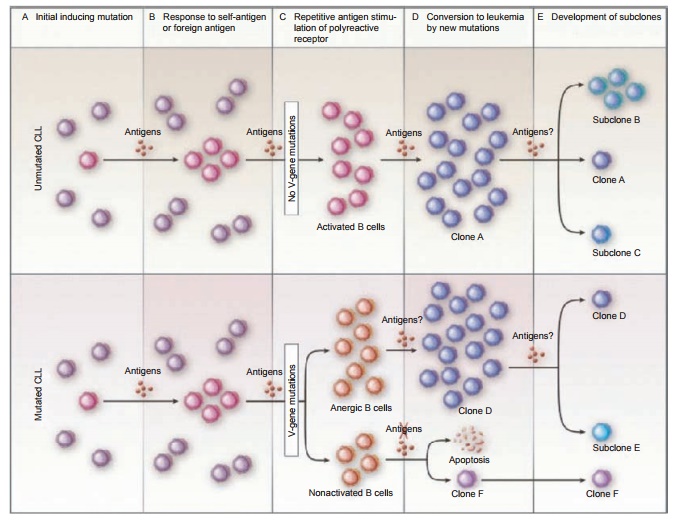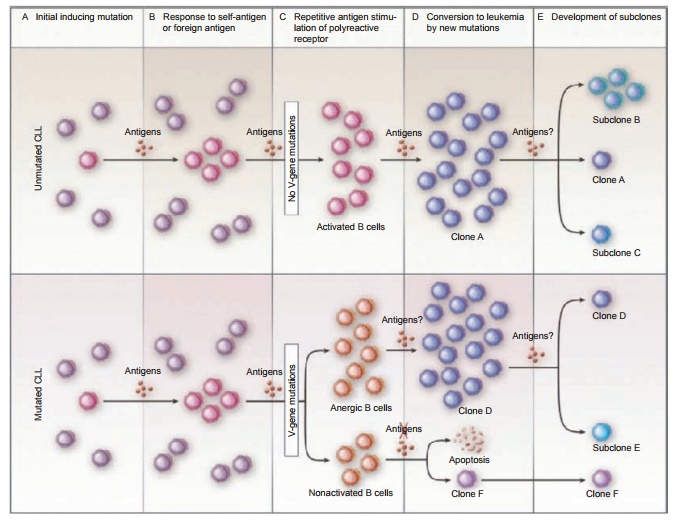Chapter: Essential Clinical Immunology: Chronic Lymphocytic Leukemia
Summary Remarks on the Development, Growth, and Evolution of B-CLL

SUMMARY REMARKS ON THE DEVELOPMENT,
GROWTH, AND EVOLUTION OF B-CLL
On the basis of the foregoing information, we
propose a model for the development of B-CLL (Figure 7.6).

Figure 7.6 Model
to explain the development and evolution of B-CLL. See text for description. Reprinted with
permission from Chiorazzi N, Rai KR, Ferrarini M. Chronic lymphocytic leukemia.
N Engl J Med. 2005;352:804–815.
B-CLL cells are able to avoid apoptosis and even to proliferate by receiving growth and stimulatory signals from the environment delivered through
their BCR or other receptors; these signals likely involve autologous and
for-eign antigens, cytokines, and chemokines, as well as yet-to-be-defined
ligands on accessory and stromal cells. The cell’s BCR mediates major growth
effects in cases for which the receptor is polyreactive, binding autoantigens
and foreign antigens, while maintaining its capacity to transmit stimu-latory
signals to the cell nucleus. Both self-reactivity and intact BCR
signal-transduc-ing capacity are more frequently found in U-CLL; hence, the
more active clonal expansion and clinical aggressiveness of patients with such
clones.
Because in vitro observations demon-strate the
absence of lesions in the major apoptotic pathways, our model posits the
absence of an intrinsic cell death defect in the majority of the leukemic
clones. We do not rule out the possibility that developing genetic alterations
in the evolving clone can tip the balance between pro- and anti-apoptotic
molecules in such a way as to favor B-CLL cell survival. However, the influence
of external signals appears to dominate based on current knowledge. This is in
line with the in vivo labeling studies indicating the dynamic nature of CLL
clones.
Related Topics